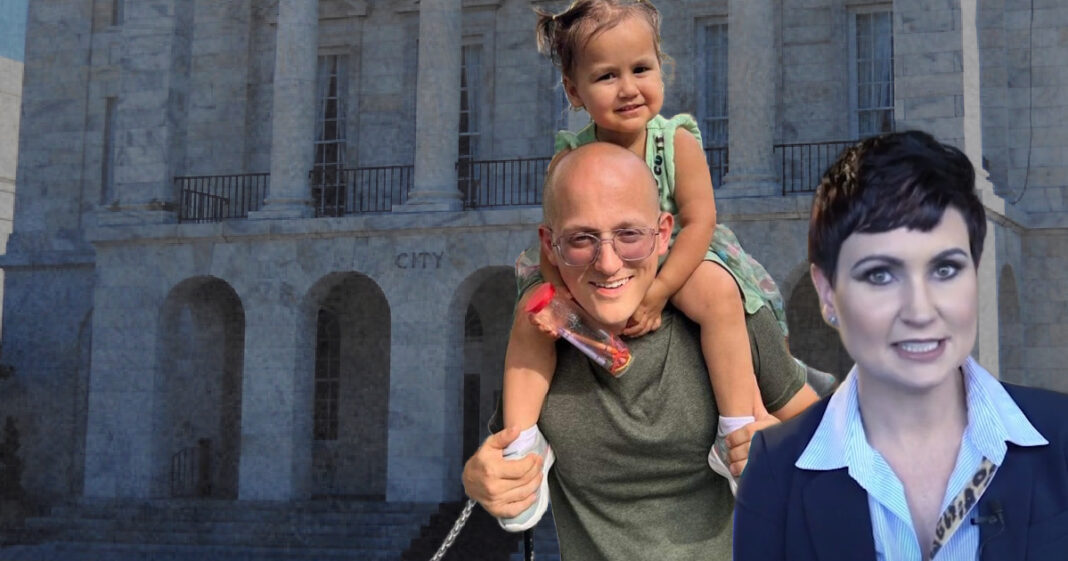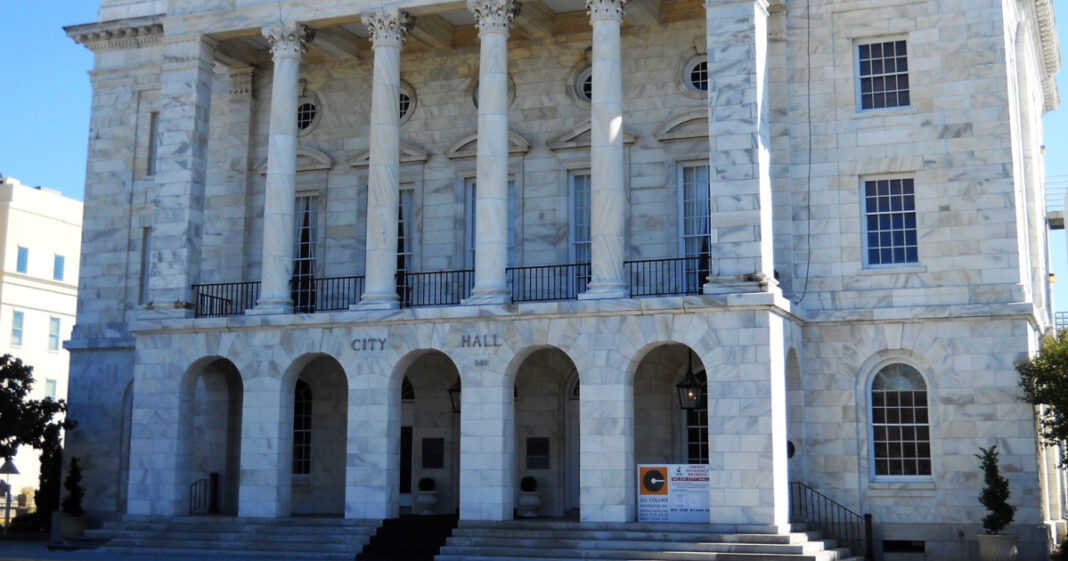BILOXI, MS — During a fiery public comment at a recent Biloxi City Council meeting, resident Jarrod Fusco delivered a passionate plea, urging the council to prioritize upholding the law over succumbing to public pressure. Fusco expressed concerns about what he described as “mob rule,” warning that elected officials were too often swayed by majority opinion rather than adhering to their constitutional oaths.
“When you make decisions as Councilmen, we, the People of Biloxi, expect you to uphold the law first, determine what the People want second, and then, if any room is left for your personal ‘feelings,’ add that in last,” Fusco stated. He emphasized that, as representatives in a republic, the council’s primary duty was to uphold the Constitution, not to give in to emotional or political pressures.
His speech came at a pivotal moment, as Biloxi grapples with rising concerns over homelessness and aggressive behavior in certain neighborhoods. Fusco’s remarks underscored his frustration with city leaders who, in his view, were compromising citizens’ rights in favor of quick fixes.
Later in the same meeting, Ward 3 Councilwoman Dixie Newman suggested the possibility of a controversial solution: implementing a walking curfew in certain neighborhoods to curb aggressive behavior by homeless individuals. The curfew suggestion, which she framed as a way to protect residents, immediately drew Fusco’s ire.
Following the meeting, Fusco posted on Facebook, “This definitely confirms that you weren’t listening to what I said during the very same meeting,” referring to Newman’s curfew proposal.
Curfew Debate Heats Up
Newman’s suggestion to institute a walking curfew after 10 p.m. in certain Biloxi neighborhoods quickly ignited a heated debate, with residents divided over whether such a measure would help protect the community or infringe upon basic constitutional rights. Newman framed the curfew as a necessary step to address safety concerns raised by residents in her ward, specifically around the former Beauvoir Elementary School, where aggressive panhandling and confrontations have become common.
“Can we also clean up that Beauvoir school back there? Apparently, the homeless are also conjugating over there, and supposedly some sex offenders, and there’s kids out there,” Newman stated during the meeting. “Is it possible maybe even setting a walking curfew past 10 p.m. in that neighborhood to stop these aggressive homeless people walking around in these neighborhoods for safety as well? Maybe have police presence in the area.”
The proposal struck a nerve with Fusco, who views the curfew as a violation of constitutional rights, particularly the right to freedom of movement. In his online response, Fusco accused Newman of breaking her oath of office. “I don’t care what solution you come up with, I won’t tolerate any solution that violates our God-given rights, which includes ‘freedom of movement.’ You swore to uphold the Constitution of the United States and Mississippi; you are an oathbreaker and deserve to be treated as such.”
A Growing Clash Between Rights and Safety
The debate over the curfew has since spilled onto social media, with residents taking strong stances both for and against Newman’s proposal. Bob Silvestro, a resident of Newman’s ward, offered his full support, posting, “What Dixie Newman said would save lives. If you would like to come to our neighborhood with your friends at night and walk around to protect us along with law enforcement, I’ll pay for your gas money.” He went on to describe Newman as “a hero” for suggesting the curfew.
Newman responded to the backlash by clarifying that her intention was not to pass an official law, but rather to explore solutions for a neighborhood she believes is in need of protection. “I’m not trying to violate your rights,” she wrote on Facebook. “I was asking for help in this neighborhood to keep people moving along and watch the homes of these people. How does that make me a bad person/leader?”
Fusco was not swayed, doubling down on his stance. “Enforce the laws already on the books; not propose a ‘walking curfew’ which is not the same as ‘moving them along,’” he fired back. “This is not about my rights, this is about ALL AMERICANS’ rights; even the sometimes aggressive homeless population.”
Taking the Fight to the ACLU
Fusco’s frustration with Newman’s proposal has led him to take further action, contacting the American Civil Liberties Union (ACLU) to intervene. In a letter addressed to the ACLU of Mississippi, Fusco laid out his concerns, arguing that Newman’s curfew suggestion violates multiple Supreme Court rulings, including Crandall v. Nevada, which protects the right to freedom of movement.
“There is no declared emergency in the area or rioting; what is being proposed is standing order in an attempt to resolve a continual issue: aggressive homeless residents,” Fusco wrote in the letter. He urged the ACLU to remind the city of Biloxi that constitutional rights should never be sacrificed in the name of temporary safety.
Fusco’s decision to reach out to the ACLU has added a legal dimension to the debate, raising questions about whether the Newman’s proposed measures could withstand constitutional scrutiny.
A Divided Community
The curfew debate has brought into sharp focus the challenges facing Biloxi as it seeks to address homelessness and public safety while also safeguarding individual freedoms. Supporters of the curfew, like Silvestro, argue that it is a necessary measure to protect residents in high-risk areas. On the other hand, opponents like Fusco see the proposal as a dangerous overreach that threatens the rights of all citizens.
With Fusco’s speech at the City Council meeting and his subsequent actions with the ACLU, Biloxi’s leadership now faces increased pressure to find a solution that balances public safety with the preservation of constitutional rights. Whether the ACLU steps in or the city reevaluates the curfew proposal, it’s clear that this debate is far from over.
As the city continues to search for solutions, the question remains: Can Biloxi address the needs of its residents without compromising the freedoms its citizens hold dear?



A ‘walking curfew’. What if, instead of ‘walking’, the ‘aggressive homeless folks’ start riding bicycles? They won’t be in violation of a ‘walking’ curfew.
Implementing a “curfew” would require a stronger police presence to enforce… It seems logical (and legal) to start with additional patrols and a more intentional police presence.